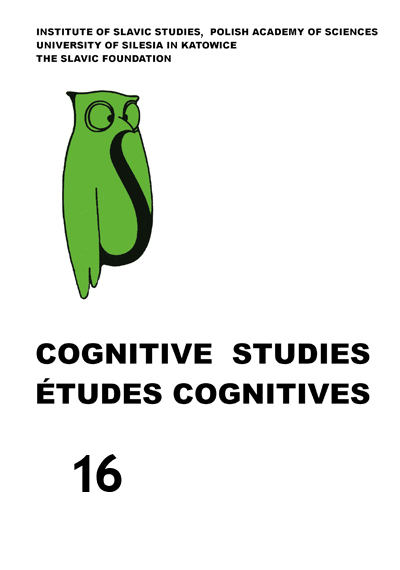THE ONE FORM/ONE MEANING PRINCIPLE. THE CASE FOR CASE. PART I
THE ONE FORM/ONE MEANING PRINCIPLE. THE CASE FOR CASE. PART I
Author(s): Krzysztof KORZYKSubject(s): Morphology, Psycholinguistics, Cognitive linguistics
Published by: Instytut Slawistyki Polskiej Akademii Nauk
Keywords: cognitive linguistics; form; grammar; meaning; linguistic case; linguistic sign; psychomechanics of language; prototype; radial category;
Summary/Abstract: The main topic of the paper is the problem of validating linguistic procedures aimed at representing the meaning of cases as they are employed in two invariant-oriented approaches to language and grammar: in Roman Jakobson’s ‘feature-based’ framework and in Gustave Guillaume’s Psychomechanics of Language. Also taken into account are trends within the cognitively-oriented approach to grammar, whose proponents object to procedures based on the structuralist principle: one form/one meaning. Ultimately, by invoking the methodological prerequisites of cognitive linguistics, as introduced in Ronald Langacker’s version of cognitive grammar, the author claims that, inasmuch as cases are concerned, there seems to be, in principle, no contradiction between introducing a stable relationship between the linguistic sign and its meaning, and positing the prototype-centered and network-based structuring of a linguistic category, as advocated in cognitive linguistics. The conclusion is that any of these three linguistic traditions could benefit by taking into account the findings of the other two approaches.
Journal: Cognitive Studies | Études cognitives
- Issue Year: 2016
- Issue No: 16
- Page Range: 12-22
- Page Count: 11
- Language: English

